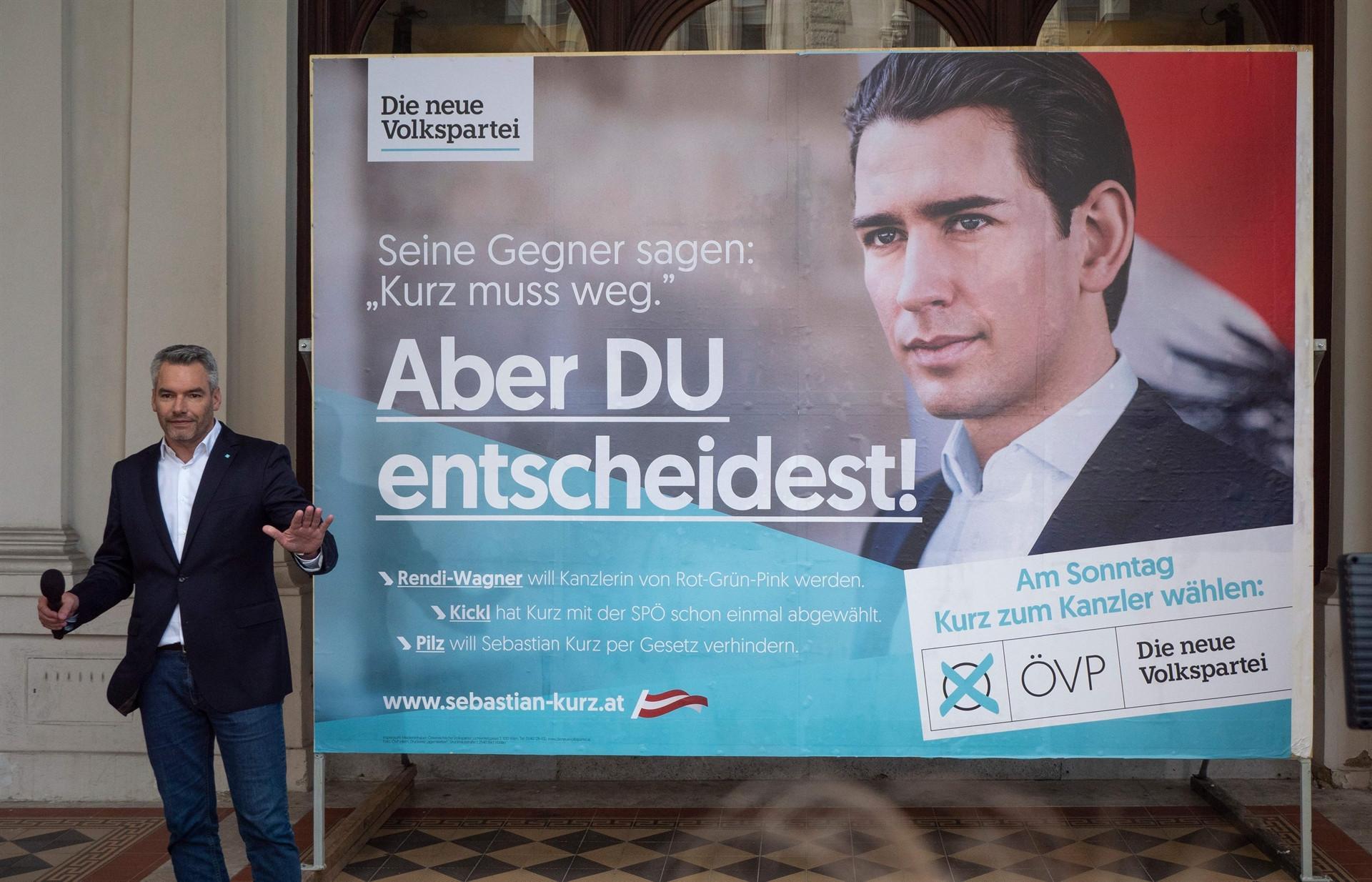
Austrians look set to put 33-year-old right-winger Sebastian Kurz back at the helm of government in snap elections on Sept. 29, despite a spectacular corruption scandal bringing down his previous coalition in May.
The so-called "Ibiza-gate" affair engulfed Kurz's erstwhile coalition partners in the far-right Freedom Party (FPOe) and earlier this week the FPOe was hit by fresh allegations that former party leader Heinz-Christian Strache misused expenses.
It remains to be seen whether the latest claims will damage Kurz and his centre-right People's Party (OeVP), who have thus far managed to avoid any fallout from Strache's actions.
Indeed, regardless of the various scandals, the OeVP looks set to improve on its previous performance and garner about a third of all votes in the small Alpine nation of 8.8 million.
That would be another resounding success for Kurz, who became the world's youngest leader in 2017 at just 31 when he formed the coalition with the FPOe.
That alliance of centre-right and far-right was hailed by Hungary's nationalist leader Viktor Orban as a model to be followed across Europe.
And even in the wake of the government breakdown, a huge 42 percent of Austrians tell pollsters they prefer Kurz as their preferred candidate for chancellor.
"There are surprises in every election, but for the first time in Austria's history there is only one candidate for chancellor," analyst Johannes Huber told AFP.
The "Ibiza-gate" scandal broke when two German newspapers published hidden-camera video footage of Strache, filmed in an elaborate sting operation on the Spanish resort island of Ibiza in 2017.
In the video, Strache appeared to offer public contracts in exchange for campaign help from a woman posing as a Russian oligarch's niece.
Despite Strache having to resign all his posts in disgrace, the FPOe is polling at 20 percent, only six percentage points down on 2017.
This despite the additional hindrance that their main vote-winning theme, fear of immigration, has been replaced by climate change as voters' top concern.
The prominence of the environment in the campaign should help the Greens, who are expected to make the biggest gains in the elections.
In 2017 they failed to gain the four percent of votes needed to enter parliament but polls now predict they will pick up around 13 percent.
But all parties -- including the OeVP -- have been keen to tout their environmental credentials in a country known for its receding glaciers but also cows grazing on mountain pastures and sparkling clean rivers and lakes.
"After fighting against immigration, he (Kurz) doesn't want to miss out on adding a new string to his bow in presenting himself as a protector of the environment," Patrick Moreau, Austria expert at the French National Center for Scientific Research, told AFP.
Unsurprisingly given the reason the election was called, corruption in public life and party financing have also been prominent themes in the campaign, as well as more bread-and-butter issues like social care.
Kurz, a former law student who has enjoyed a rapid ascent through the ranks in Austrian politics, has warned that other parties could yet band together to form a coalition without him.
But analysts say a more likely outcome is a repeat of the OeVP-FPOe government, albeit with Kurz in a strengthened position vis-a-vis his coalition partners.
At the same time, "Sebastian Kurz is sending signals in all directions to have as many options as possible after the election," analyst Thomas Hofer told AFP.
Another option that has been floated is an alliance with the Greens and liberal NEOS party.
Kurz might be tempted by this when he reflects on the headaches the FPOe brought him in government, not least the steady stream of racist and anti-Semitic statements from FPOe members.
Kurz "cares about the image of his country abroad, where the FPOe is the only topic," an associate close to Kurz told AFP.
The FPOe's closeness to Russia also caused problems, with fears among Austria's Western partners over possible leaks to Moscow of sensitive information.
But whichever way coalition negotiations go, they could once again take months before a new government is sworn in.